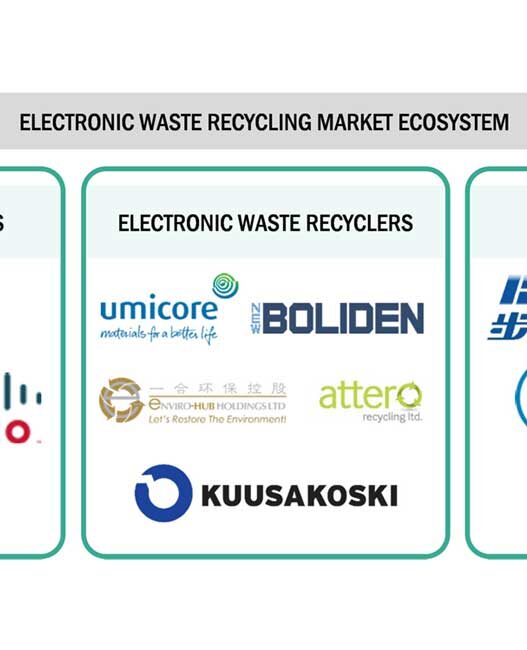Based in Kigali and inspired by the University of Rwanda’s existing Africa Centre of Excellence of Energy for Sustainable Development, the new Centre – which is operational and already conducting feasibility studies – aims to link the country’s farmers, logistics providers and agri-food businesses with a range of experts and investors. In future phases, the scope will be expanded to cover interested partners in Africa.
Rwanda’s Cooling Initiative (RCOOL), supported by the UN Environment Programme (UNEP) through its United for Efficiency (U4E) programme, provides the foundation for the new Centre, which is part of the country’s National Cooling Strategy, launched in 2019.
‘‘The African Centre of Excellence in Energy for Sustainable Development is delighted to be part of this important work on sustainable cold chain for food and medicines – energy-efficient, climate-friendly, and affordable cooling and cold chains can improve agricultural efficiency and boost farmers’ incomes, driving real environmental and economic change,” said Professor Etienne Ntagwirumugara, the Director of the Centre for The African Centre of Excellence in Energy for Sustainable Development.
“The new Centre will allow us to expand, building on the existing efforts of the University of Rwanda; we look forward to collaboration with partners on the African continent and beyond.”
Researchers from the University of Birmingham and Edinburgh’s Heriot Watt University are joining RCOOL to apply their expertise with rural cooling and that can be used for food and medicines. The Centre will build upon their work in India with non-profit, commercial and academic partners investigating cold chain opportunities. The UK Department for Environment, Food and Rural Affairs (DEFRA) is funding these efforts.
“Sustainable cooling can improve our food security, reduce food waste, protect vital vaccines, and reduce emissions of climate-damaging refrigerant gases. It underpins our mission to promote sustainable development around the world. The UK is a pioneer of innovative, climate friendly cooling solutions and we look forward to working with others to advance this important work,” said the Right Honourable Lord Goldsmith, UK Minister of State for Pacific and the Environment.
Farmers are often lacking effective ways to manage the distribution of produce after harvest and get it to market. In-effective delivery systems limit farmers’ ability to sell goods beyond a local area. For example, tomatoes are widely produced and consumed in Rwanda, but because of their high perishability and short shelf life, 25% of the production is lost post-harvest. This is due to lack of temperature management, as tomatoes are stored on the ground covered by canvas instead than modern cooled stores, and transported in poor quality containers.
Project Co-developer and Technical Lead Toby Peters, Professor of Cold Economy at the University of Birmingham, said: “Cold chain itself is about ensuring an integrated, optimised and managed network of temperature-controlled pack houses, pre-cooling operations, vehicles, cold stores, and distribution hubs which seamlessly maintains the safety, quality and quantity of food, delivering it swiftly from farms to consumption centres across geographies.
“Farmers need robust means of getting perishable produce to urban markets. But we must ensure that cold chain logistics are sustainable. We need local and global ‘field-to-fork’ connectivity to nutritiously feed ten billion people from hundreds of millions of small-scale farmers, all without using fossil fuels.”
Data is required to make this investment economically sustainable. As countries face the economic crisis caused by the COVID-19 pandemic, maintaining economic activity, creating jobs and supporting the most vulnerable becomes an urgent priority. Cooling and cold chains support these economic necessities. Specifically, the Centre will be a boost for Rwanda, where farming accounts for some 30% of national GDP and 73% of the workforce is directly employed in agriculture.
Professor Phil Greening from Heriot Watt University commented: “Most post-harvest losses occur close to the farm gate, where facilities to process perishable produce are lacking, because farmers can’t afford to invest and lack financial expertise and technical knowledge.
“However, these processes are energy-intensive, often relying on fossil fuel-based power generation and use refrigerants with a high climate impact. The Centre will help Rwanda’s policymakers shape a sustainable cold-chain blueprint for the country and the continent.”
The project supports Rwanda’s National Agricultural Export Development Board’s (NAEB) five-year strategy to double agricultural exports by 2024-25 and significantly increase exports of aqua-culture, beef and other temperature sensitive products.
“Efficient, affordable cooling is an important element in efforts to curb climate change. Without action to address energy efficiency, energy demand for space cooling is projected to more than triple by 2050,” said Inger Andersen, Executive Director of UNEP. “The new Centre of Excellence in Rwanda will be a boon for sustainable cold chains that are essential to respond to the COVID-19 global pandemic. As we seek to build back better, sustainable cooling can help deliver vaccines, ensure food supply, and reboot the economy by generating employment and investment opportunities.
Ultimately, with the support of the Centre of Excellence, farmers can benefit from best practices on business models, training facilities, and ‘Living Labs’ where the latest technology is demonstrated and proven with those intended to use it. The Centre will help Rwanda’s policymakers shape a sustainable cold chain blueprint for the country and the continent.













